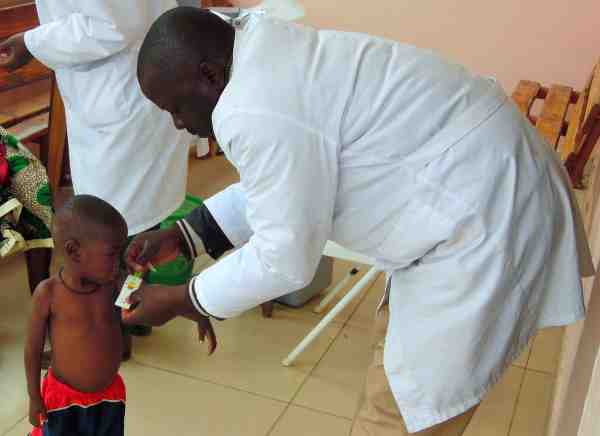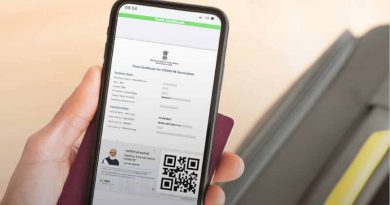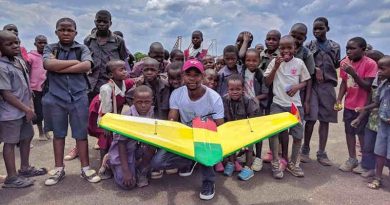Vaccination Campaign Covers 4.7 Million Children in Nigeria

In a major vaccination campaign concluding this week, 4.7 million children are being vaccinated in response to a measles outbreak in northeast Nigeria.
The campaign is covering the three states most affected by the Boko Haram conflict – Adamawa, Borno and Yobe – where insecurity has limited vaccination efforts.
In 2016, there were approximately 25,000 cases of measles among children in Nigeria; 97 per cent of the cases were in children under the age of ten and at least a hundred children died.
“Security has improved in some areas so we have acted quickly to access places we could not previously reach and protect children from the spread of a very dangerous disease”, said Mohamed Fall, UNICEF representative in Nigeria. “We are still extremely concerned about children living in large areas of Borno state that are not yet accessible.”
[ Donate – Free Schools for Poor Children ]
Measles infections tend to increase during the first half of the year because of higher temperatures. Measles vaccination coverage across Nigeria remains low, with a little over 50 per cent of children reached, but in areas affected by conflict, children are particularly vulnerable.
The risks for malnourished children who have weakened immunity are further heightened. The conflict and resulting displacement have left more than 4.4 million children in Nigeria in need of humanitarian assistance, with an estimated 450,000 children likely to suffer from Severe Acute Malnutrition in 2017.
The vaccination campaign, conducted in partnership with the Nigerian government, WHO, and several non-governmental organizations, also includes a vitamin A supplement for children under five to boost their immunity as well as de-worming tablets. Most of the funding for the campaign was provided by the Measles and Rubella Initiative.
[ UNICEF Documentary Reveals Syrian Children’s Struggle for Education ]
UNICEF has trained more than 1,000 health workers on emergency primary health care services; in areas that have become accessible more recently to humanitarian workers, UNICEF has recruited 60 nurse-midwives and deployed six doctors to strengthen health services.
The emergency in northeast Nigeria remains acute with more than 1.6 million people displaced because of the conflict.
Although UNICEF has made significant progress in reaching children and their families with healthcare, treatment for malnutrition, safe water, sanitation and hygiene services, education and child protection, UNICEF says a persistent lack of funding continues to hamper the response effort.
Of the US$115 million called for in 2016, only US$51 million was received; in 2017, UNICEF is seeking 150 million to respond to the urgent humanitarian needs in northeast Nigeria.
Photo courtesy: UNICEF




